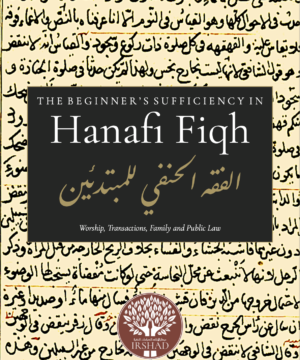Description: The Hanafi school, named after the preeminent jurist of his time, Abu Hanifa (d. 150/767), is the oldest and most widely followed of the four surviving Sunni legal schools (madhahib). Having its origins in 2nd/8th century Kufa, the school quickly spread across the Islamic world, developed a distinct body of rulings and a sophisticated legal theory, and evolved into an authoritative entity. In this course, students will learn about the history of the Hanafi school and its development from the time of its founders till the modern period. Recordings are available on the class forum. **Students registering from January 2024 onwards will have access to the recordings and resources, and they will be able to attend live for any additional lessons offered.*
Instructor: Shaykh Dr Salman Younas
Salman Younas graduated from Stony Brook University with a degree in Political Science and Religious Studies. After completing his undergraduate degree, he moved to the Middle East where he spent half a decade studying Arabic and the traditional Islamic sciences. In 2013, Dr. Salman completed his MA in Oriental Studies from the University of Oxford with honours. He then went on to complete a DPhil in Oriental Studies from the University of Oxford in 2018. His thesis focused on the formation and evolution of the Ḥanafī legal school during the 3rd/9th and 4th/10th centuries.
Time: 4pm EST | 9pm GMT (1.5 Hours)
Frequency: Saturdays
Starting: 30th January 2021
Length of course: 50 weeks (~ 52 lesson recordings)
Prerequisites: None.
Level: General
Payment Plans: If you need to subscribe to a payment plan, please use the Stripe option at checkout. PayPal is not an option for subscriptions.
Topics: (i) The major figures of the school, (ii) The major texts they authored and their legal thought, (iii) The spread of the Hanafi school to various regions, (iv) The manner in which the circle of Abu Hanifa evolved into a mature school, (v) The legal principles and philosophy of the school and its development, (vi) The theological, social, and political developments that help in understanding the spread and evolution of the school, and more.
n.b. There will also be select sessions with guest lecturers




